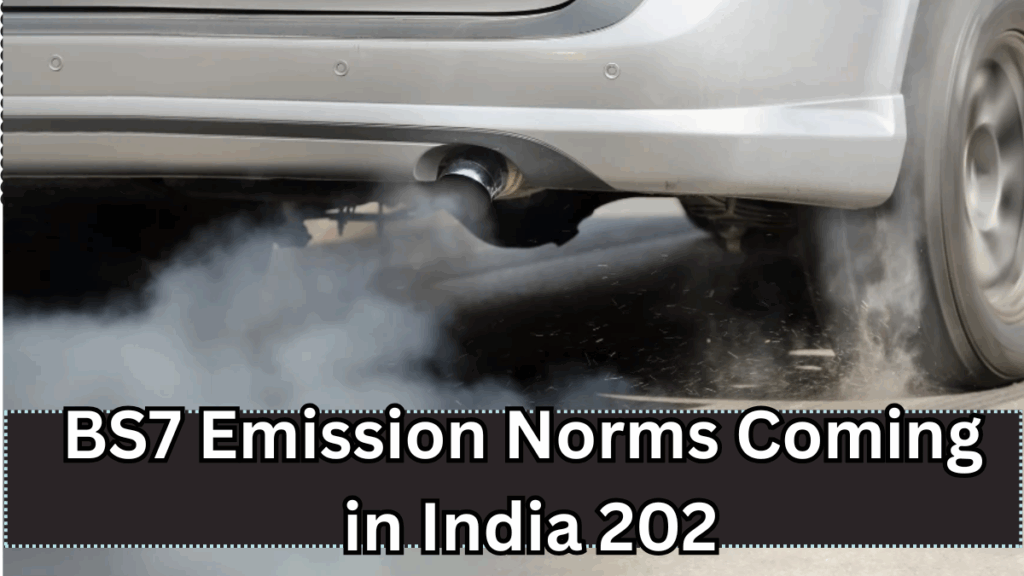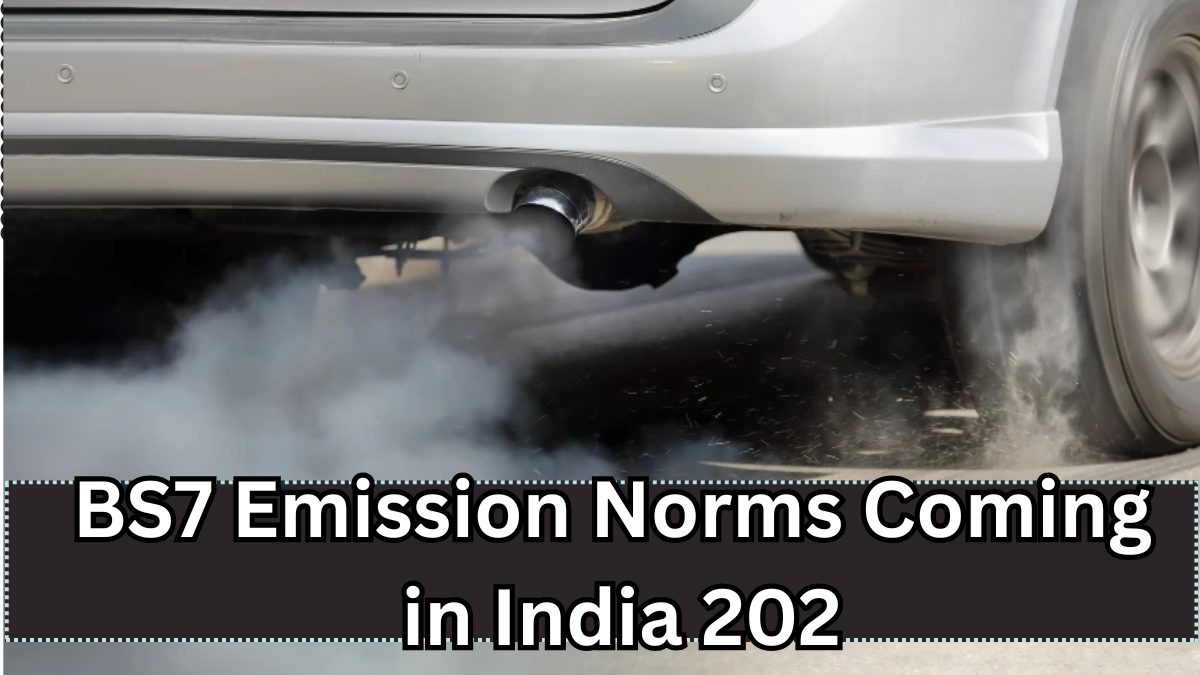India is stepping up its efforts to combat vehicle pollution. After the implementation of BS6 norms, the country is now preparing to introduce the BS7 emission norms India 2025, which will bring even stricter regulations for car manufacturers and owners.
If you’re a car buyer, owner, or enthusiast, understanding these new vehicle rules will help you make informed decisions in the coming months.

What Are BS7 Emission Norms?
BS7 (Bharat Stage 7) refers to the upcoming emission regulations that will follow BS6. These norms aim to reduce air pollutants like nitrogen oxides (NOx), carbon monoxide (CO), and particulate matter (PM) even further than current standards.
They are expected to be aligned with international benchmarks like Euro 7 and focus more on real-world emission testing instead of just lab results.
Why Are BS7 Norms Being Introduced?
India faces persistent air pollution challenges, especially in urban centers. To tackle this:
-
The government is pushing for cleaner engine technologies.
-
BS7 aims to reduce vehicular pollution at the source.
-
It supports India’s broader environmental and climate change commitments.
Key Differences: BS6 vs. BS7
Here’s a comparative look at how BS7 will differ from the current BS6 norms:
| Feature | BS6 Norms | BS7 Norms (Expected) |
|---|---|---|
| Testing Method | Lab-based emission testing | Real-world driving emissions (RDE) |
| Onboard Diagnostics | Basic OBD systems | Advanced OBD & continuous monitoring |
| Emission Limits | Moderate for NOx & PM | Tighter NOx and PM limits, especially diesel |
| Technology Requirements | Selective Catalytic Reduction, DPF | Enhanced systems + real-time data logging |
| EV/Hybrid Focus | Some incentives | Stronger shift encouraged by new norms |
Impact on Car Owners and Buyers
1. Higher Vehicle Prices
Complying with BS7 will increase the cost of manufacturing. As a result, both petrol and diesel vehicles are likely to become more expensive.
2. Possible Restrictions on Older Vehicles
Just like older BS4 vehicles lost favor after 2020, BS6 cars may face limitations in resale and re-registration once BS7 emission norms India 2025 come into force.
3. Rise of EVs and Hybrids
To avoid the complexity of emission compliance, automakers are expected to accelerate the development of electric and hybrid models.
4. Real-World Emission Monitoring
Vehicles will be monitored in everyday driving conditions, not just in labs. This means compliance must be maintained even after a vehicle is sold.
How Automakers Are Preparing
Car manufacturers are gearing up for these new vehicle rules by:
-
Investing in R&D for cleaner engines and emission control systems
-
Developing more hybrid and electric models
-
Planning to phase out vehicles that can’t meet BS7 standards
Expected Timeline for BS7 Implementation
| Stage | Timeline |
|---|---|
| Draft Notification | Mid 2024 |
| Final Approval | Late 2024 or Early 2025 |
| Implementation Begins | Tentatively Late 2025 |
Should You Wait for a BS7-Compliant Vehicle?
This depends on your needs:
-
If you’re planning to keep your vehicle for a long time, waiting for a BS7-compliant model might be wise.
-
If you’re buying an EV, go ahead—they’re already aligned with future regulations.
-
If your budget is tight and you need a car now, BS6 models still provide good value.
FAQs
Q1. What happens to my BS6 car once BS7 is introduced?
Your BS6 car will remain road legal, but resale value and long-term usage might be affected, especially in cities with stricter pollution controls.
Q2. Will car prices increase due to BS7 norms?
Yes. Upgrades in engine tech, sensors, and diagnostic tools are likely to raise vehicle costs by ₹50,000 to ₹1 lakh or more, depending on the segment.
Q3. Are BS7 norms focused only on diesel cars?
No. While diesel vehicles are more affected due to higher emissions, BS7 will apply to both petrol and diesel engines, along with hybrids and other fuel types.
Q4. Is now a good time to buy an electric vehicle?
Yes. EVs are future-proof and won’t be directly impacted by BS7, making them a smart choice under the new vehicle rules.
Final Thoughts
The upcoming BS7 emission norms India 2025 are a crucial step in India’s clean mobility journey. While they may bring price hikes and tighter restrictions, they also pave the way for cleaner air and healthier living. Staying informed about these new vehicle rules will help you make smarter automotive decisions in 2025 and beyond.
Click here to learn more
